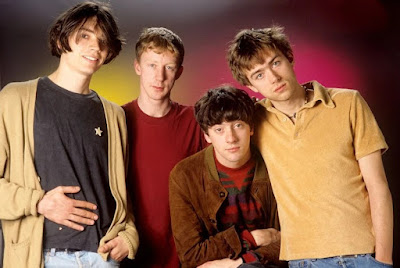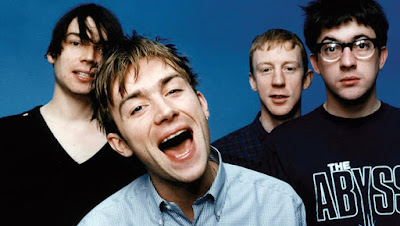Since the release of their eponymous debut album in 1991, Blur has gone on to become one of the most iconic and influential British bands of the last three decades. From the early days of Britpop, with their signature sound of upbeat melodies and catchy hooks, Blur evolved into a more mature and complex act, experimenting with a variety of musical styles on every album they released. With the release of their eighth studio album, The Magic Whip, Blur have finally come full circle, returning to their roots in the Britpop genre while still adding a modern touch to their music.
The first phase of Blur’s evolution began with the release of their sophomore album, Modern Life Is Rubbish, in 1993. This album saw the band exploring a variety of musical styles, from punk and reggae to funk and soul. They even experimented with a bit of hip-hop on the track, “Chemical World”. This album marked a major shift in Blur’s sound, and was a huge influence on the Britpop movement.
The follow-up album, Parklife, was released in 1994 and brought Blur to the forefront of the Britpop scene. The album showcased their melodic and hook-filled songwriting, as well as their ability to craft catchy pop songs. Tracks like “Girls & Boys” and “Parklife” became instant classics and cemented Blur as one of the most important British bands of the time.
The band’s next album, The Great Escape, was released in 1995 and saw them embracing a more experimental and eclectic style. While the album still featured many of the same elements as its predecessors, it also included a variety of new influences, including electronic music, jazz, and even classical compositions.
Blur’s fifth album, Blur, was released in 1997 and saw the band completely reinventing their sound. This album featured a much darker and edgier sound, with the band exploring a variety of genres, from alternative rock to trip hop and electronica. The album was an instant success and is widely considered to be one of the best albums of the 90s.
The band’s next album, 13, was released in 1999 and was their most ambitious and experimental album to date. This album saw the band embracing a variety of different styles, from garage rock to psychedelia, as well as incorporating elements of jazz and classical music. 13 marked a major shift in Blur’s sound, and was a major influence on the indie rock scene.
Blur’s seventh album, Think Tank, was released in 2003 and was their most experimental album to date. The album featured a variety of different styles, from ambient and electronic to world music, and featured a variety of guest musicians, including the likes of Brian Eno and Fatboy Slim.
After a seven-year hiatus, Blur finally returned in 2015 with The Magic Whip. This album saw the band returning to their Britpop roots, while still adding a modern touch to their music. Tracks like “Go Out” and “Lonesome Street” featured the same upbeat melodies and catchy hooks that fans had come to expect from Blur, while also incorporating elements of electronica and world music.
The Magic Whip is a testament to Blur’s evolution over the years, as the band has been able to remain relevant and influential while still staying true to their roots. Blur may have started out as a Britpop band, but they have evolved into so much more, creating a unique sound that is all their own.
Overall, Blur’s sound has evolved significantly over the past three decades. From their roots in Britpop to their current album, Magic Whip, the band has consistently created music that is both catchy and thoughtful. Whatever direction they take in the future, Blur’s music will always have a place in the hearts of music fans.




No comments:
Post a Comment